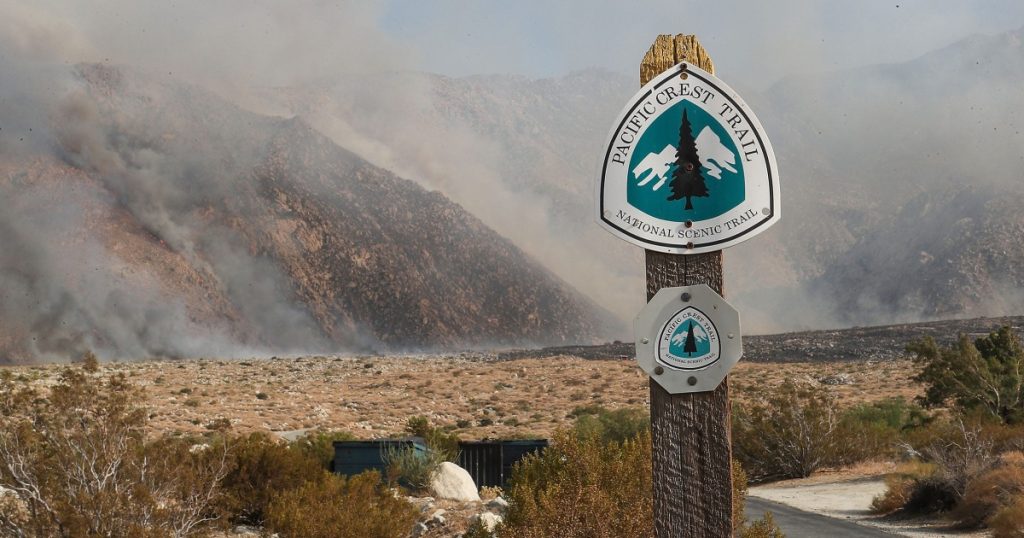Wildfires have made portions of the Pacific Crest Trail (PCT) more hazardous and unpredictable, forcing hikers to contend with closures on short notice. For many distance hikers, the blazes are changing their goals and making them witnesses of dramatic environmental change. As wildfire seasons become longer and less predictable, more trail users and communities along the trail are being affected. The PCT, known for its challenging terrain through the Mojave Desert, Sierra Nevada, and Cascade Range, sees thousands of hikers seeking long-distance permits each year. However, intense wildfire seasons have transformed the landscape due to global warming and a history of aggressive fire suppression.
In addition to fire risk, climate change is causing water scarcity in some areas along the trail. Glaciers are receding, leading to slick bedrock exposure and dangerous stream crossings. Extreme weather events such as late-season snows and high temperatures are also impacting hikers. This father and son experienced wildfires first-hand while hiking the PCT, witnessing the changing daily lives of communities in fire-prone areas. Locals were constantly prepared to evacuate at a moment’s notice, reflecting the new reality brought about by changing fire patterns.
Hikers on the PCT face challenges from wildfires, with many being forced to skip sections or navigate complex route changes due to fire closures. The Pacific Crest Trail Association has launched a smartphone app to help hikers track wildfire closures. Local “trail angels” play essential roles in keeping hikers safe during wildfires, providing support, food, and shelter to those stranded by fires. Even when not encountering active fires, hikers walk through burn zones, serving as stark reminders of climate change’s impacts on the environment and trail experience.
For hikers like Will Georis, who walked the PCT after the Dixie Fire, the trail’s burn zones presented challenges that highlighted the changing biodiversity and forest landscapes due to fires. While fire itself is not unnatural, today’s forests are not as resilient to modern fire conditions, leading to more intense and destructive blazes. Despite the challenges posed by wildfires, many hikers find the PCT experience worthwhile, citing the community, scenery, and personal growth as valuable aspects of the journey. Juxtaposed against the changing climate and environment, hikers like Georis stress the importance of flexibility, adaptability, and appreciation for the experiences and people encountered along the trail.


